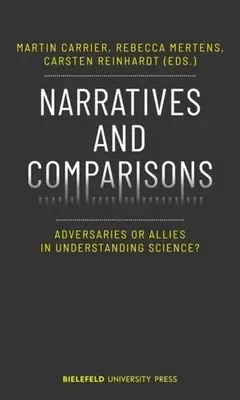Narratives and Comparisons: Adversaries or Allies in Understanding Science?Paperback, 27 January 2021

Qty
1
Turbo
Ships in 2 - 3 days
In Stock
Free Delivery
Cash on Delivery
15 Days
Free Returns
Secure Checkout

Part of Series
Biup General
Print Length
250 pages
Language
English
Publisher
Bielefeld University Press
Date Published
27 Jan 2021
ISBN-10
383765415X
ISBN-13
9783837654158
Description
Product Details
Book Format:
Paperback
Country of Origin:
US
Date Published:
27 January 2021
Dimensions:
22.86 x
15.24 x
1.12 cm
ISBN-10:
383765415X
ISBN-13:
9783837654158
Language:
English
Pages:
250
Publisher:
Series:
Weight:
281.23 gm